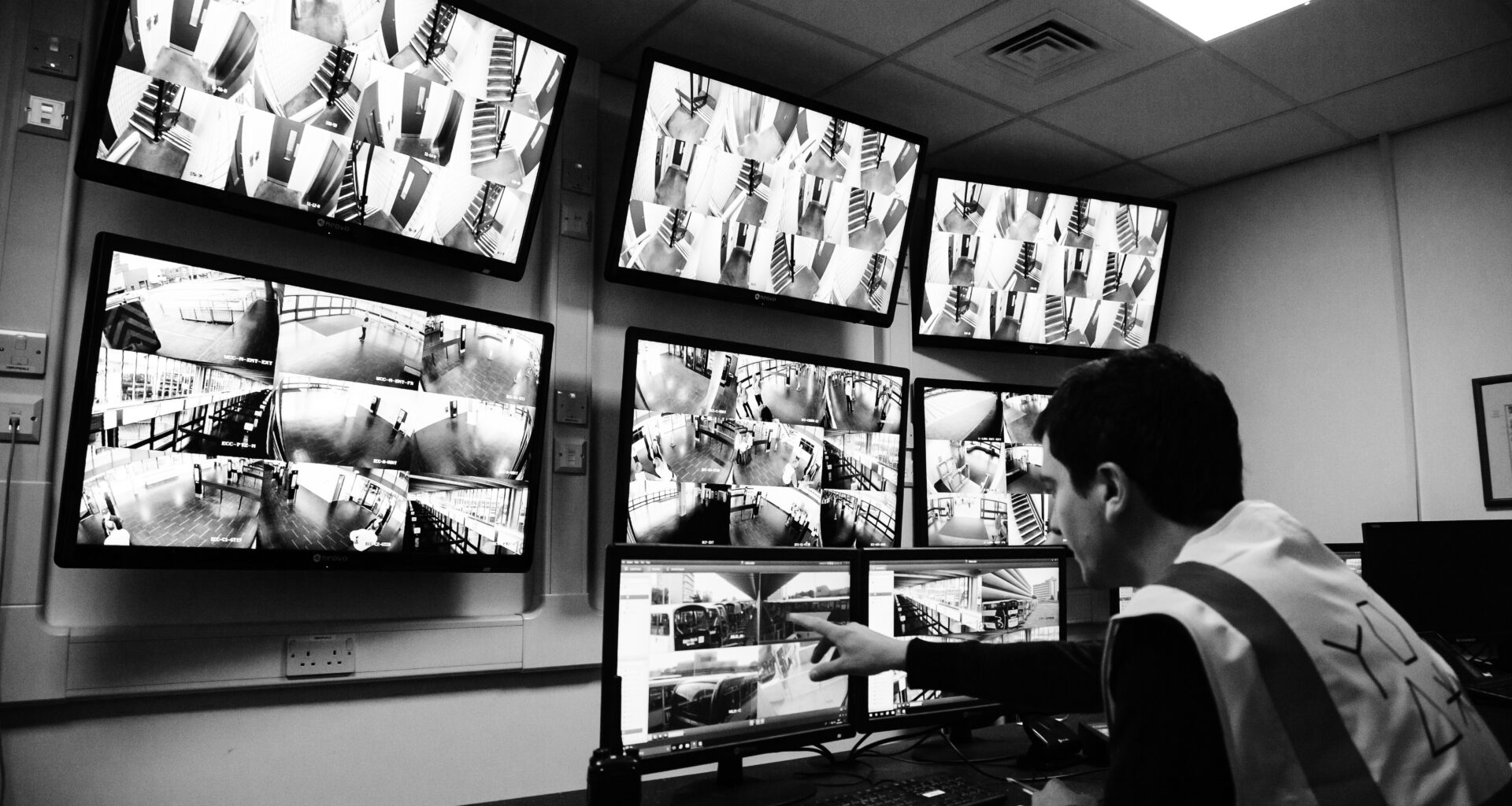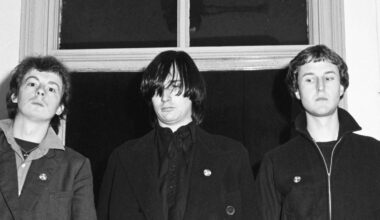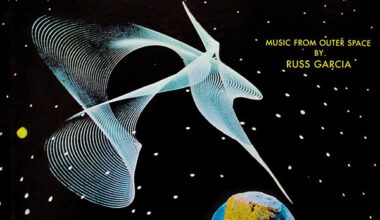We visit Preston to meet Polypores and friends to talk Brutalist bus stations, Bob Moog, napping at gigs and, most importantly, how the city has nurtured a burgeoning electronic and experimental music scene
The bus honks its horn. Then honks it again. And suddenly, the whole of Preston Bus Station is filled with the cacophonous noise of simultaneous honk as double-decker vehicles reverse and pirouette across the yard. What’s that old saying? You wait ages for a bus and then 40 come along at once to perform an avant-garde mixture of infrastructural choreography and ambient electronica.
And yet this is not some eerie protest by a bunch of disgruntled drivers, it is ‘Conductor’, a collaboration between the musician Carl Brown, aka Preston Field Audio, and the artist Keith Harrison, a concept driven and organised by the city’s University Of Central Lancashire and their ‘In Certain Places’ project. It’s probably the first time that public transport running on time brought a tear to the eye of anyone on this unexpectedly pristine concourse.
At some point in the last decade, Preston began to emerge as an unlikely hotbed of new electronic and experimental music. Where neighbouring towns and cities are lucky if they have one alternative music venue, or even the back room of a pub for an evening, Preston has several thriving spots. It has labels and promoters investing in the city’s musicians, while also succeeding in engaging artists from much further afield. But how did this happen? What does Preston have that other cities in the north do not?
Well, there’s the bus station of course. The terminus itself has been the centre of controversy and remains a divisive icon; some see it as a modernist monstrosity, a concrete symbol of the frivolous and the distastefully cerebral in a city traditionally identified as pragmatic and down to earth. While others, including those who, in 2011, designated it a World Heritage Site, have adopted the building as the symbol of a city that combines function with progressiveness, proudly elbowing the surrounding, more conservative architecture into its brutal and beautiful shadow.
I’ve travelled the 20 rain-sodden miles from Wigan to Preston to meet Stephen “Polypores” Buckley. Joining us in the front room of Buckley’s home is Durham Modun, co-founder of Concrète, a night that eventually gave birth to a label, whose name is a pun about the local futurism of both architecture and music.
We’re gathered here not only to take shelter from the torrential rain outside, but to discuss the genesis and continued rise of the Preston scene.
“The idea for Concrète came about in the late summer of 2014,” explains Modun. “It began as a conversation between myself, Robin Hill and Joe McLaren at [popular music venue ] The Ferret. Joe knew that I made music and he was thinking of setting up a creative outlet for ourselves and other artists as there was no one else doing it at the time.”
The newly formed night eventually split into two categories: the first was strictly techno, inviting local artists (including Modun and Hill’s Unit 303 collaboration) to play to a party/rave audience. The second night featured experimental electronica, again engaging local artists to come and perform. Which is the point where Buckley enters the story.
“I was introduced to Modun through Joe when I went to my first Concrète night,” says Buckley. “You should know that Durham pronounces ‘concrète’ the proper French way. I think he probably says Moog properly, too.”
“I do say Moog,” concedes Modun, his pronunciation rhyming with “vogue”, “which is only right really given that I once rang him up. I wanted him to fix my keyboard. He was a very, very sweet guy, really humble. He had a company called Big Briar in North Carolina and there was a number at the bottom of the listing. I rang it and I heard, ‘Hello, Bob Moog’ and I was like, ‘I’m talking to Bob Moog!’. At the end of the call I said, thanks for inventing the synth, Bob.”
“This is why Durham is the king of electronic music in Preston,” says Buckley, as a grin begins to curl beneath his trademark moustache. “He was on the phone to Bob Moog while we were still listening to Iron Maiden and trying to get ourselves girlfriends.”
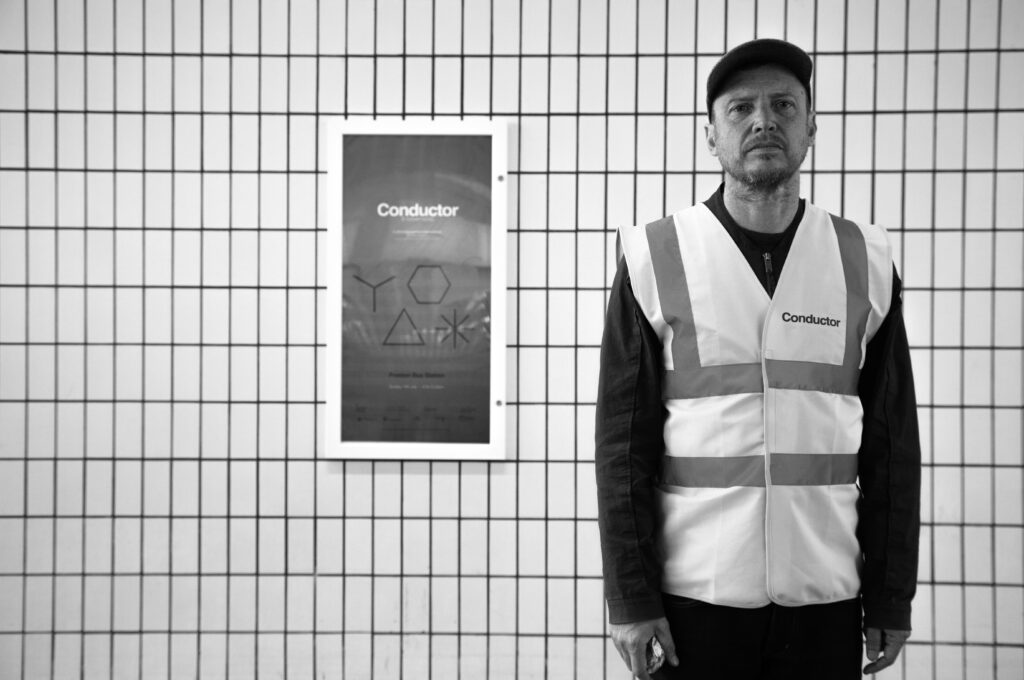
Having played in several local bands – including Hello Bamboo, their name pinched from the telephone greeting of a local takeaway – Buckley performed at Concrète several times throughout 2014, which coincided with McLaren thinking about expanding the night into what would become the Concrète Tapes label.
Many of the creative projects that were springing up out of Preston’s cracks and crannies were nurtured by successful Concrète events, but as 2014 turned into 2015, McLaren decided to take the plunge and expand the project to take in physical releases.
“The Concrète night started mostly because of Durham,” says McLaren. “At the time, I wasn’t doing much in Preston, but I was going out a lot in Manchester – Islington Mill was in its golden period and it seemed like there was an essential show there practically every week. I’d often bump into Durham there, usually with Rob Hill.
“Durham had a reputation around Preston for having a huge collection of vintage synths, but no one ever got to hear them. So whenever I bumped into him and Rob at the Mill, I’d hassle him to play live. He never got round to approaching anyone, so in the end I just booked a night at The Ferret and told him to get something ready. Loads of people came and we had a smashing night, so we decided to do it regularly.
“The label started in similar circumstances. I’d known Stephen for years, but he’d always been in bands that weren’t really my thing, so I never used to bother listening to what he was posting up on Facebook. Then one day, in an idle, moment, I did. It turned out he’d changed his style completely and was creating this 80s-sounding electronica, like labels such as Ghost Box were putting out – and I loved it.”
So much so that it provided the impetus to set up a cassette label, its first releases being ‘A Shunned Place’ by Polypores and the self-titled Hyberus record, both of which were released in October 2015.
Buckley had previously released ‘The Investigation’ and ‘Edgewoods’ EP in March of that year and in the four years that have followed, his cosmic synthscapes have found their way on to more than 12 releases, including 2016’s ‘Wastes’ from and 2017’s ‘The Impossibility’. The sound of Buckley’s most recent album, ‘Flora’, released in July via Castles In Space, has drastically evolved from his earlier pieces. How has his creative process changed?
“Quite often, the thing I want it to be at the start is completely different from how it turns out” he says. “With the earlier Polypores stuff, it was very much that I’d have an inspiration and write around that and begin with a definite intent. Now, it’s more sitting down with the synthesisers and seeing what happens.”
Buckley is open to allowing his music to change and develop, and McLaren has maintained a policy of eclecticism for the Concrète label.
“I approached another Preston musician, Carl Brown, to see if he was interested in releasing something,” McLaren says of the period towards the end of 2015. “Carl had done an amazing live show for us the Christmas before, which remain among my favourite performances at the Concrète nights. He was just in the process of setting up his own label though so didn’t have the time or inclination to do anything new for me, but he did have his final university piece, a series of musical meditations on the city of Preston, made by manipulating field recordings he’d made around the town.”
This appeared as 2016’s ‘Rhythm Tree Fell’ tape and, with titles such as ‘Moon Kill Sun’ and ‘Songs Of Transport’, his ability to create something as inexplicably moving as the ‘Conductor’ piece is not surprising. What’s more surprising is his own Them There Records project. With releases such as the weird electronics of JB Glazer’s ‘Compact Break’ and a reissue of the perfectly off-kilter pop of ‘Passiflore’ by Montreal’s Le Fruit Vert, Them There is expanding its musical reach much further than the bus routes that connect Preston’s disparate electronic heads.
But if there’s one place that locks together these pockets of electronic creativity, it’s not the local vinyl emporium Action Records or any of the great venues, it’s the university.
“The music department seems to have turned out most of the experimental musicians in the city,” explains McLaren, “and I’ve collaborated with them on a load of projects in the last couple of years. There used to be an experimental night connected to the university at the Continental a few years ago run by Robbie Judkins [now a member of Bruxa Maria and performs solo as Left Hand Cuts Off The Right] called Ear Whacks, which is where many of us would make a load of useful connections.
“I think all the Preston-based artists I’ve released have been either on the music production course, I know Stephen did his degree there, or on the Music Practice course, which is part of the same department. It’s overseen by John Lacey, who was a member of Coum Transmissions in the 70s, and is a very interesting guy to chat to. Demdike Stare and Rainer Veil both came up through the department, too”
These days, the city has a rich network of promoters, labels, venues and bands. Alongside outlets such as Concrète and Them There, nights such as When The Waves Come and initiatives like They Eat Culture have widened the creative horizons of the city.
“We’re lucky in Preston,” explains Buckley, “because we’ve got people like Joe McLaren, a lovely bloke who is incredibly open-minded and who loves all kinds of music. But then you’ve also got guys like Nash, who lives about five minutes down the road, and he puts on proper doomy, sludgy rock. He gets these bands from all over the country, but he always puts me and Durham on as well.”
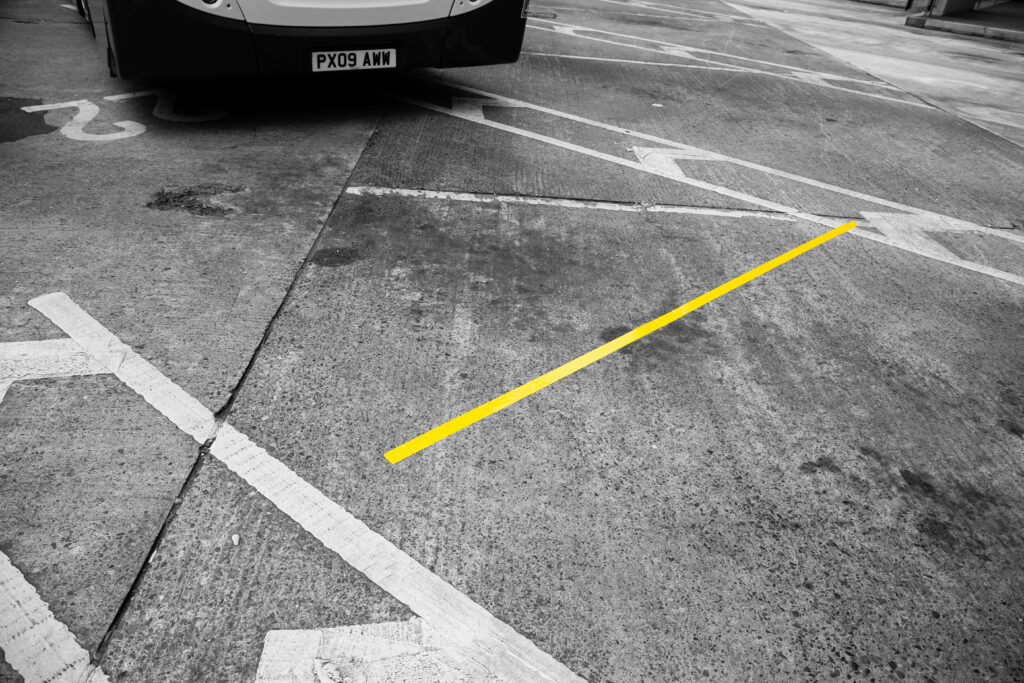
These shows tend to take place in more traditional rock venues such at The Ferret, but it’s fair to say that when Polypores performs in stranger locales (his recent appearance on top of a multi-storey car park in Stretford, for example), the delicate and meditative nature of his music has a deeper impact on the audience.
“Places like The Ferret are great and I love going there, watching bands, hanging around with my friends and having a beer,” says Buckley, “but I wouldn’t necessarily want to watch ambient music there. At the Subliminal Impulse Festival in Manchester recently the audience were all sat on comfy chairs. It was brilliant, that’s what I want. My friend’s wife was wearing a Fitbit and during my set she was so relaxed that it actually recorded her as having napped. Something like that is far more suited to a deep listening experience and I’d like more of that!
“Something that I’ve wanted to do for a while is basically make a gig for me. Comfortable seating, brews and get something like yoga going on. Multidisciplinary, visual arts, nice food. I’ve wanted to do something like that for ages, but I’ve no experience in putting on events. The last gig I played was with Luke French – I’ve known him for ages through bands – and he sorted us out with this daytime event at the Townhouse, so maybe…”
Luke French makes music as La French and, when not creating his solo electronic work, he plays bass guitar for the excellent Fighting, who sound a bit like Andy Partridge fronting Rocket From The Crypt. And, like Polypores, French’s work has found a home on McLaren’s Concrète Tapes. With the likes of Turantula, Evil Blizzard and Ahoy all having emerged recently is it that the city is building a new musical identity or peeling back the façade of something that was always there?
“Scenes need people who get off their arses,” says Buckley. “It just takes someone to have that initiative, what Joe did led to me being heard by a lot more people. And some of those people had record labels, and that in turn led to my first vinyl release, which led to me being heard by a lot more people – people who run radio shows, people who run websites and blogs, and it’s all grown from Joe sending me that first message.”
And if you explore the back catalogue of Concrète Tapes, it’s clear that this story isn’t unique to Polypores. The label has released records by the likes of Poulton-le-Fylde’s Basic Concept, Lancaster’s Field Lines Cartographer, and the previously mentioned La French and Preston Field Audio.
Like the bus station itself, the label has acted as a hub for pockets of like-minded creatives and fans alike. Just as they can be physically connected via a bus ride that terminates at that modernist monolith, they are also connected digitally from the margins by those who stoke their shared passion for a new northern kosmische.
And like the bus station, not everyone recognises the brilliance of what Preston has hidden in plain sight. But those who get it, love it and will come from miles to see. Some, even, from as far afield as Wigan.
Polypores’ ‘Flora’ is out on Castles In Space.
For more, including live dates, visit polypores.bandcamp.com, for more about Concrète Tapes, see concretetapes.bandcamp.com
